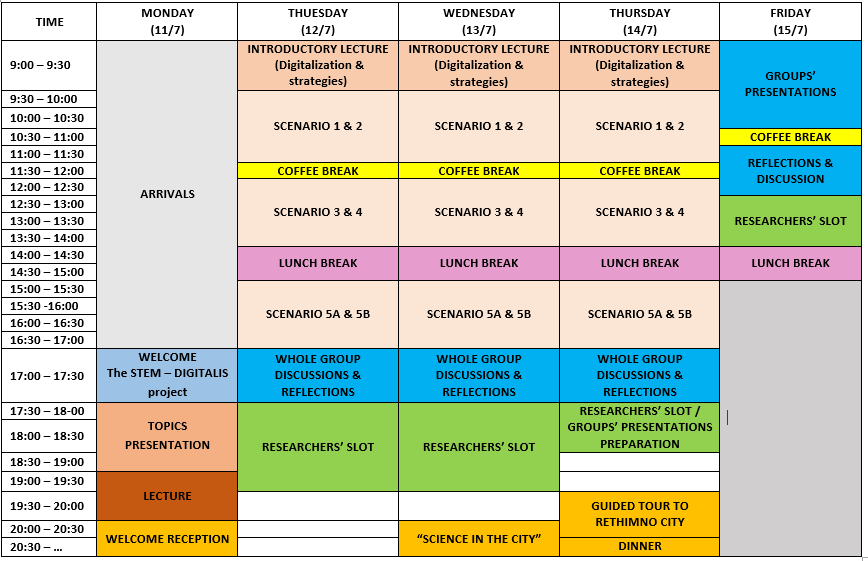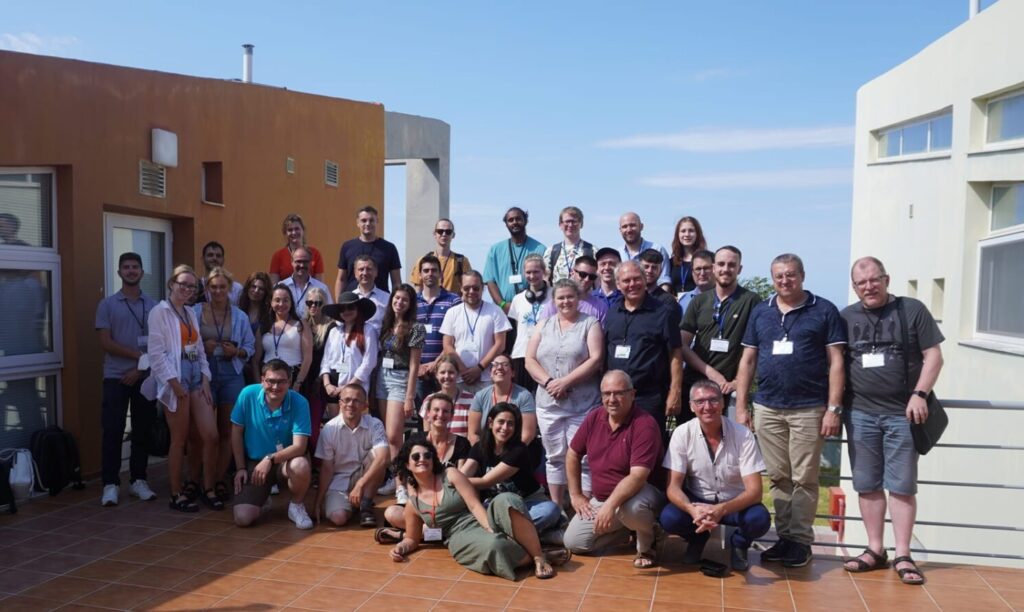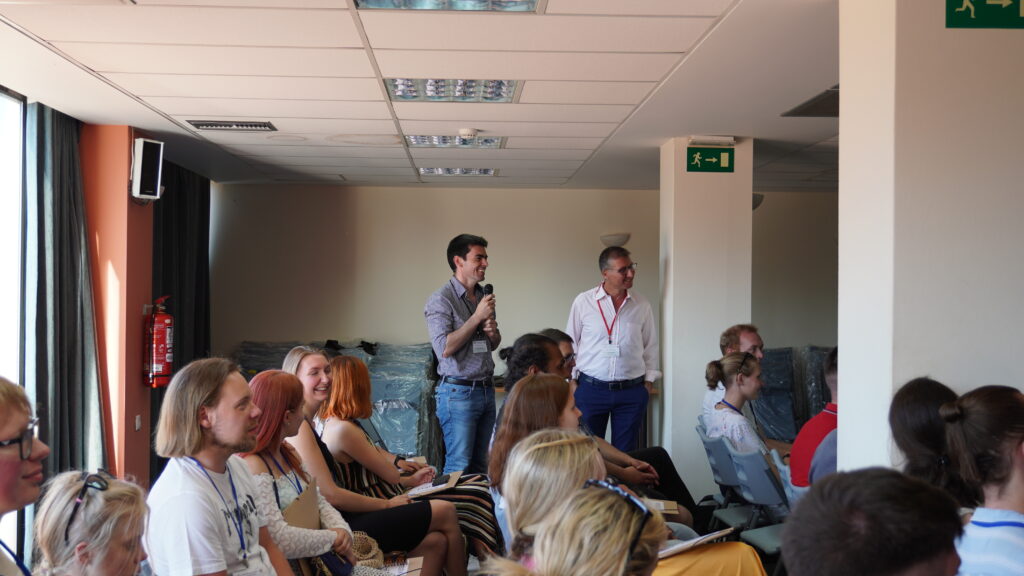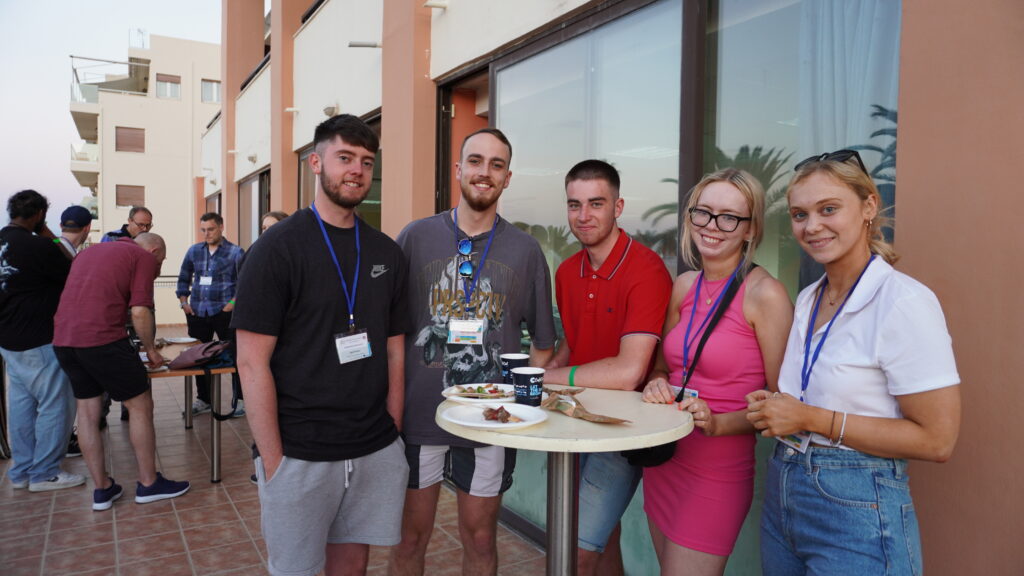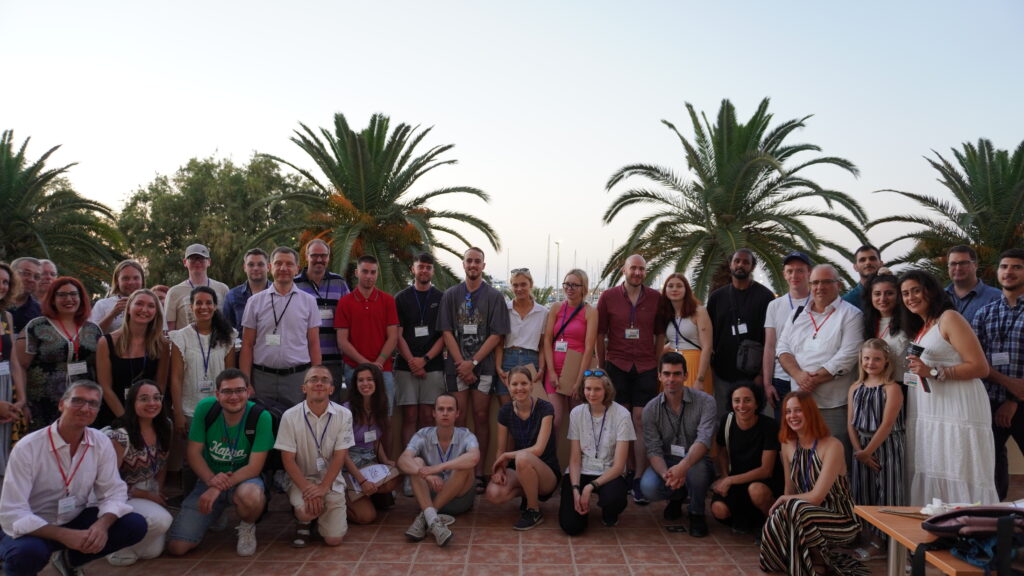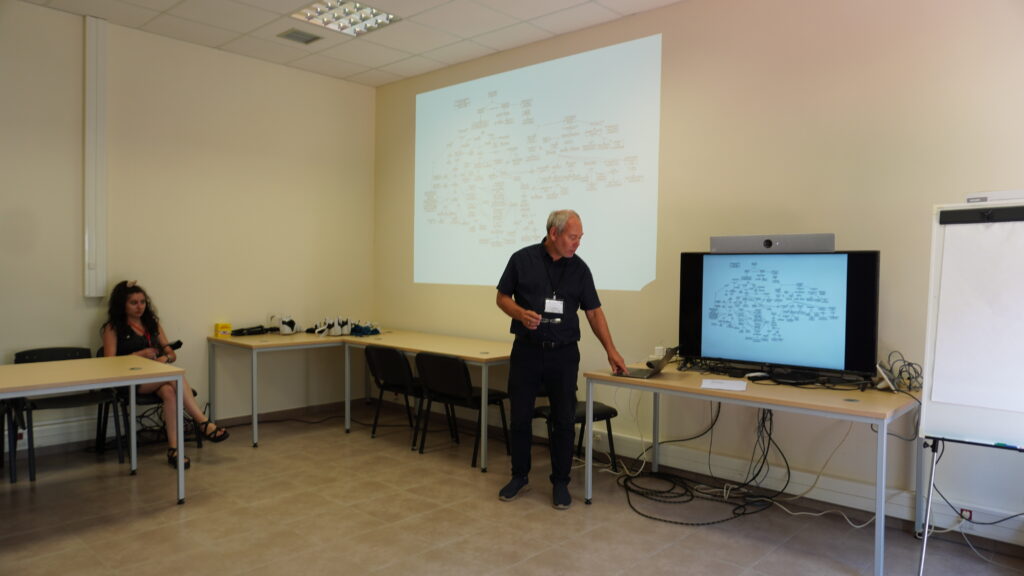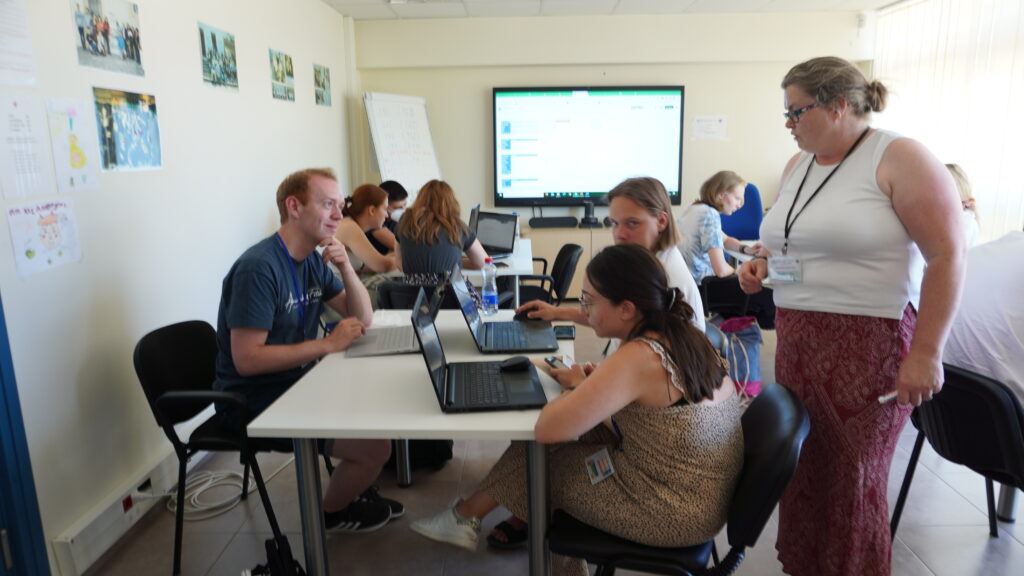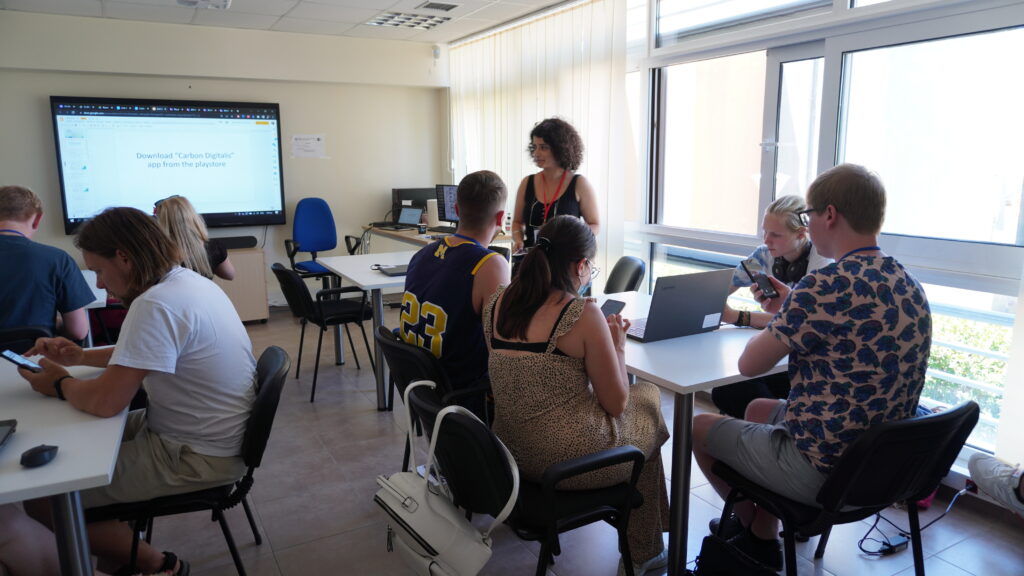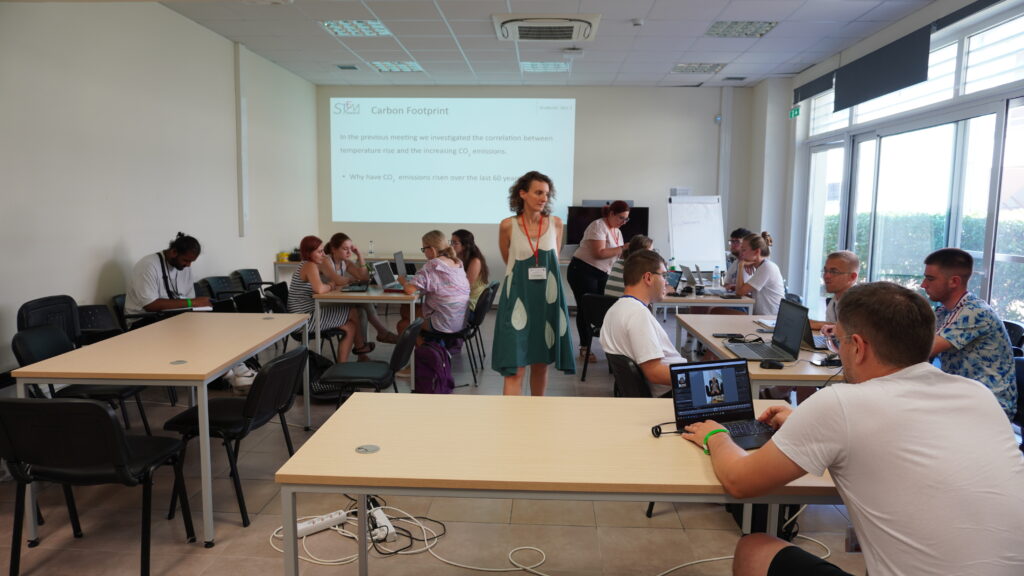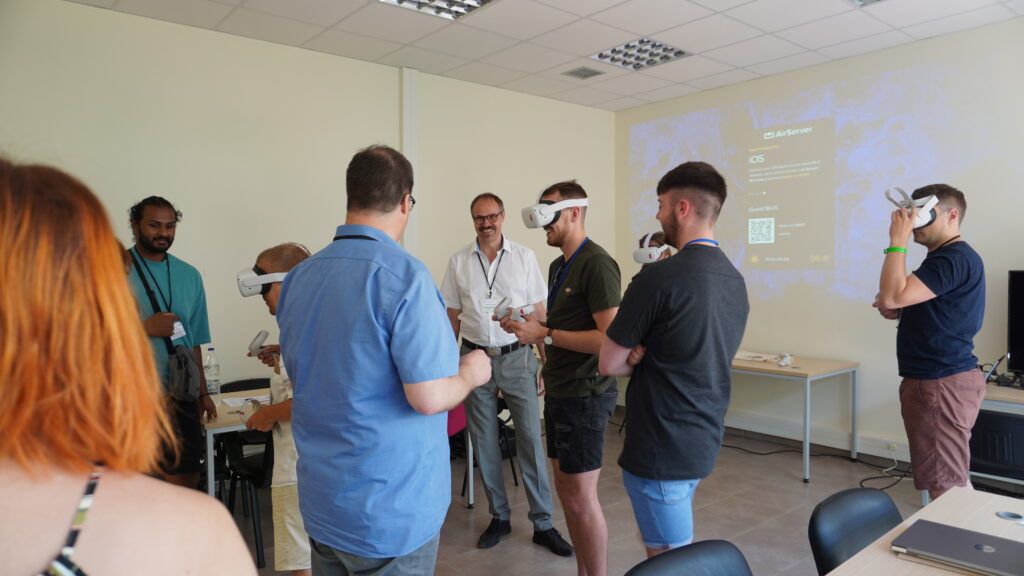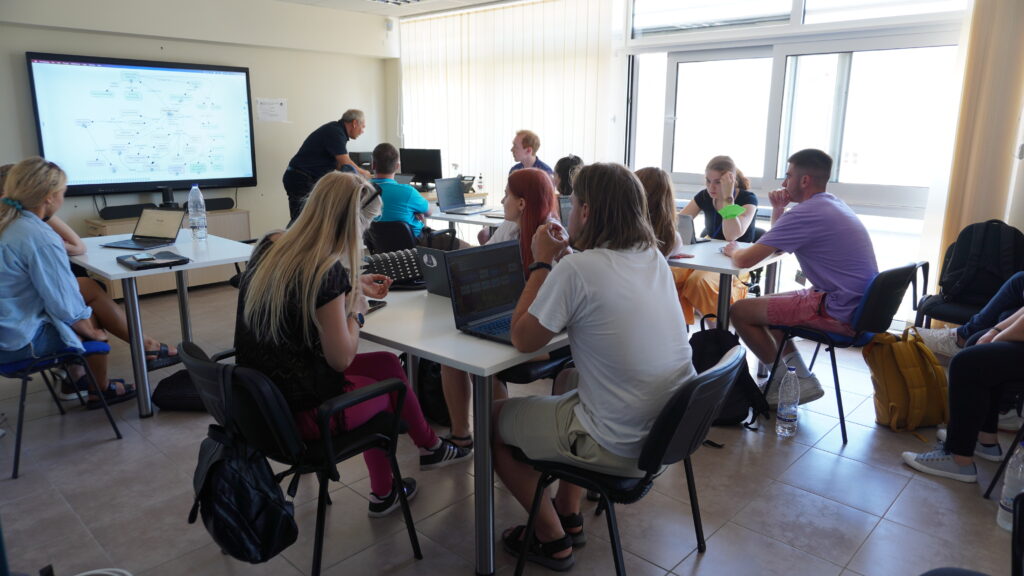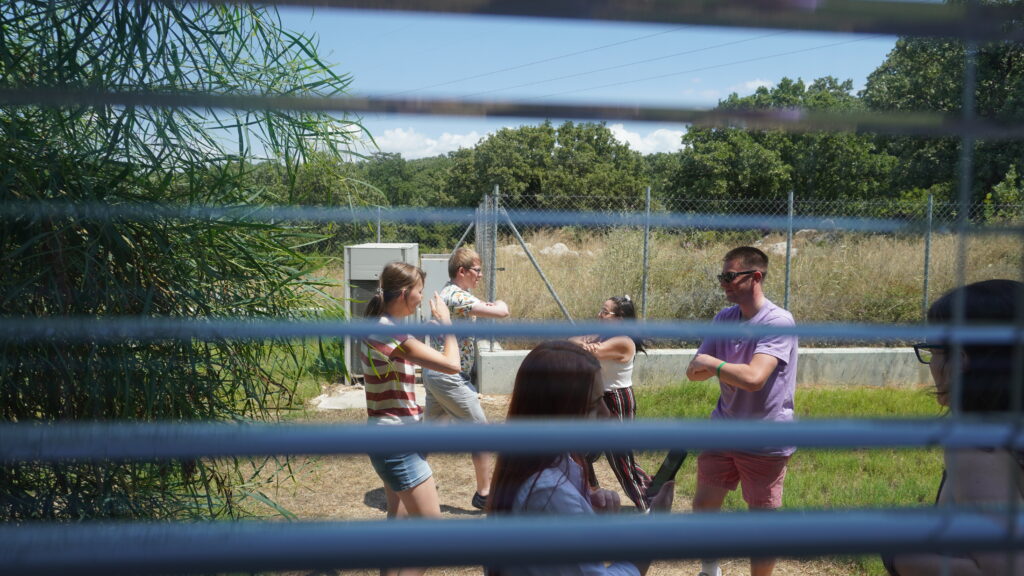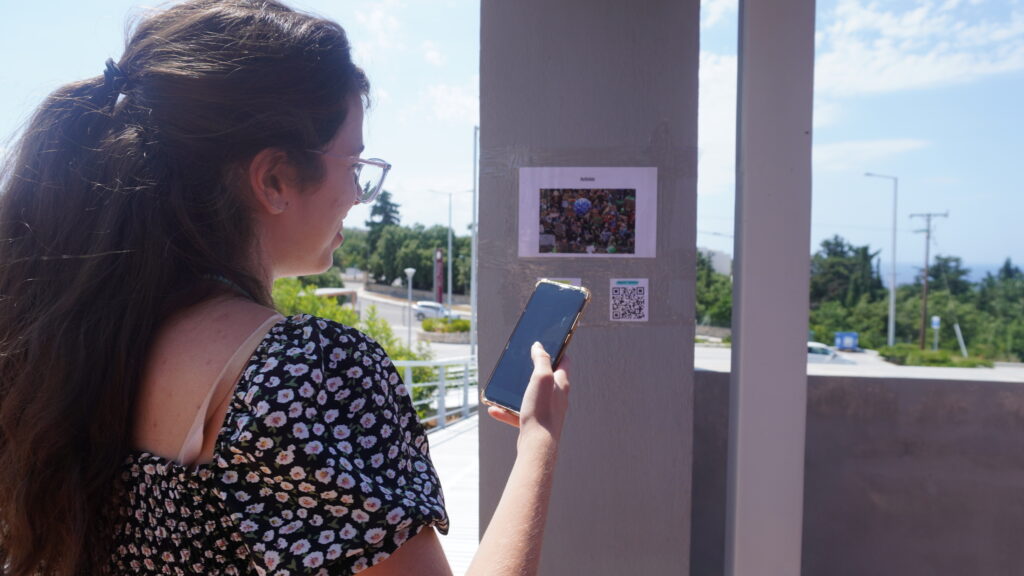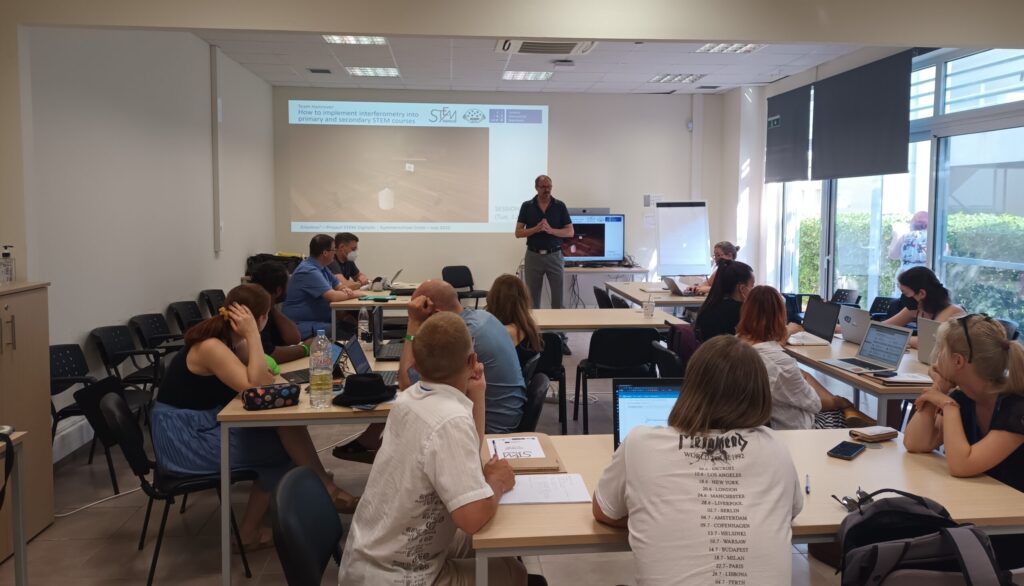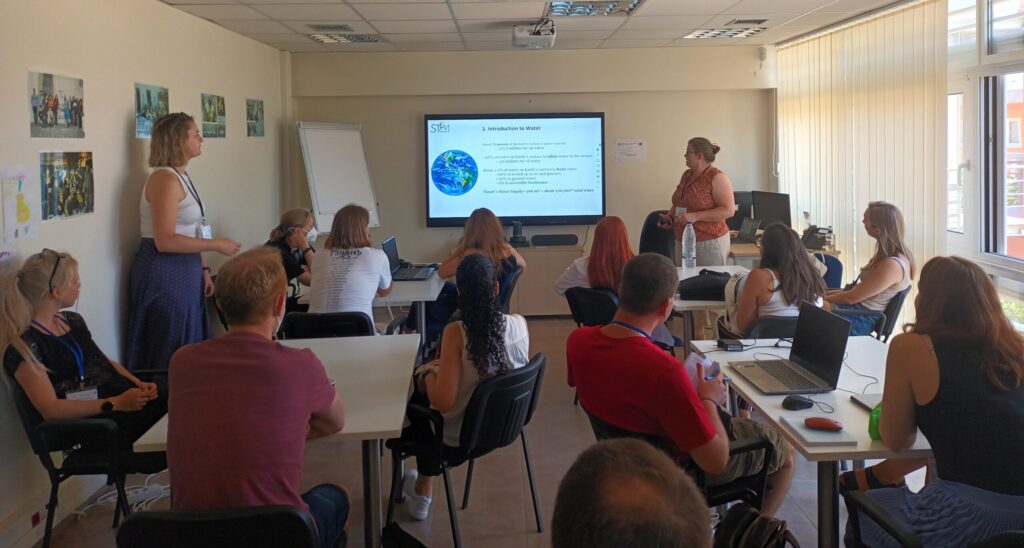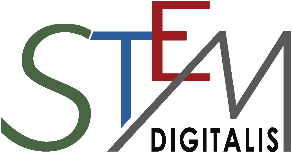The “STEM DIGITALIS” Summer School was held in Rethymno, Crete, Greece from July 11th to July 15th, 2022. The lecture and workshop rooms were located at the University of Crete at the Research Center for the Humanitites, the Social and Education Sciences (UCRS), which is an autonomous interdisciplinary research unit supervised by the University of Crete (UoC) Senate and is committed to linking theory to practice, and science to society (https://keme.uoc.gr/index.php/en/).
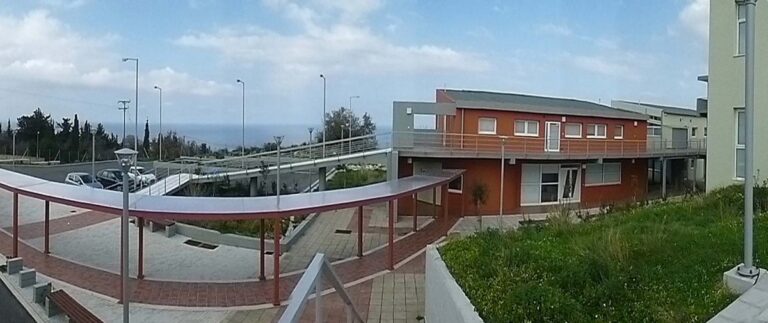
The aim of the summer school was to implement, with preservice teachers, the innovative digital teaching scenarios on advanced STEM topics that had been developed by the partners during the first year of the project. Therefore, twenty-five preservice teachers participated in the summer school (five from the institute of each partner). Furthermore, 15 researchers from the cooperating institutes participated in the summer school both as trainers of the preservice teachers and as trainees of the other researchers. During the summer school, students engaged with a variety of digital tools and teaching strategies based on the following topics:
- Climate change
- Energy transformation
- Interferometry
- Ocean Batteries & Ocean energy farms
- Water
- On the first day of the summer school, an open lecture by Dr. Papadakis Stamatis about the use of digital tools in STEM teaching was carried out as well as the welcome reception.
- On the second and third day, students were divided into two groups that worked in parallel. In particular, the students implemented the digital materials developed by each partner and got familiar with a variety of digital tools.
- On the fourth day, students also had time to prepare a short presentation in order to apply what “new” they had learned during the summer school.
- Finally, the fifth day was devoted to students’ presentations and to a reflective discussion on digitalization in STEM education. Besides the students’ summer school, a summer school about the researchers was held.
The aim of that summer school was the familiarization all the partners with the developed digital teaching scenarios and their approaches to digitalization. In addition to the scientific part of the summer school, social events took place in order to reinforce students’ long-term cooperation. For further information about the structure and the schedule of the summer school, see the attached program.
